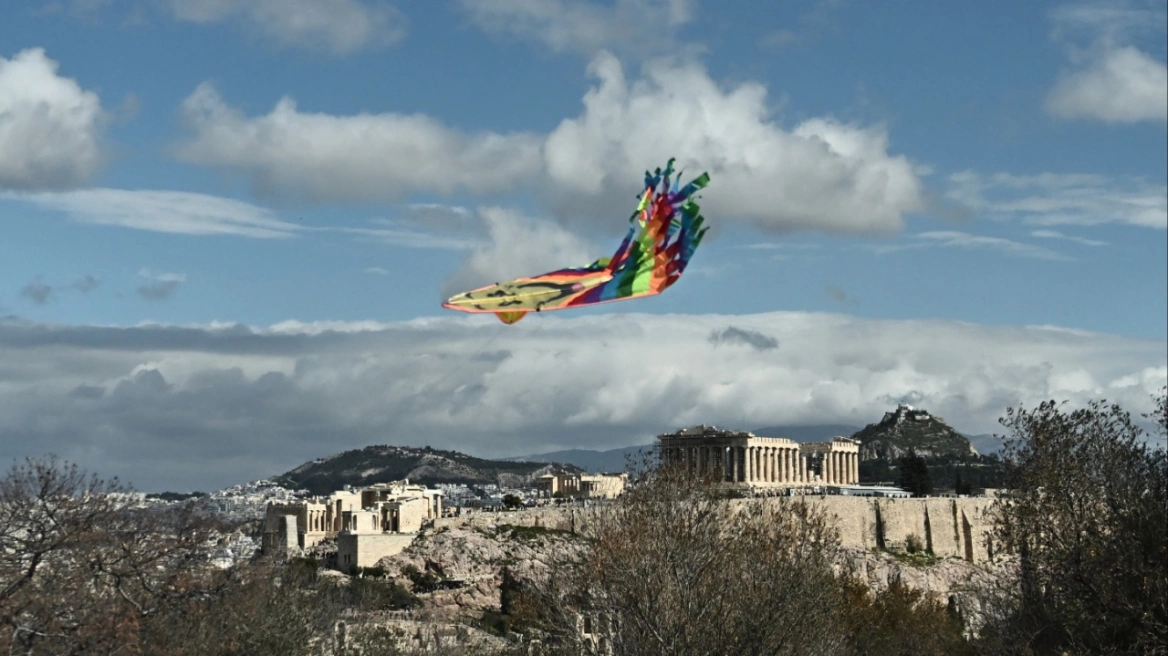Alexis Kougias, who passed away today at the age of 74, was undeniably much more than a top-tier criminal lawyer with an impeccable command of the law.
Above all, as he often said himself, he was just a kid from Petroupoli, playing with a hoop in the working-class neighborhood where he grew up, dreaming of a better life.
Raised in conditions far from ideal but with loving parents, this tough Petroupoli native (and never a Kolonaki socialite) became not only an exceptional lawyer but also a dedicated family man, a football club president, a media favorite, a fearless fighter, and a self-made success story.

Throughout his eventful career, he built strong friendships, including with Lakis Lazopoulos, Grigoris Vallianatos, and Sakis Kehagioglou, only to later clash with them publicly.
Had he not been a lawyer—handling over 16,000 cases, as he often reminded people—he could have pursued anything else he wanted.

Footballer, referee, prosecutor, judge, actor, politician, PR specialist, even a showman—Kougias had the charisma to excel in any field.
A Lawyer Who Became a Media Phenomenon
During his storied legal career, Kougias found himself at the center of countless high-profile cases.
One of the most dramatic chapters in his life was his highly publicized divorce from former model Evi Vatidou. But this time, the media attention that had long favored him was not on his side.
In the years that followed, however, he and his ex-wife mended their relationship for the sake of their two children, whom he adored and spoke of with deep affection.
The Rise of a Legal Titan
Kougias entered the legal profession at just 23 years old. His university years in Thessaloniki were challenging, and to support himself, he played amateur football.
Despite financial struggles, he was an excellent student and quickly obtained his law degree. Initially working as a trainee lawyer, he was willing to take on any job to survive—from working in cafés to delivering newspapers—never shying away from his humble origins, even as he later became part of the legal and social elite.
With intelligence, relentless work ethic, and fierce ambition, he built his name with precision, waiting for the breakthrough that would propel him to the top of the legal world.
That moment came with his defense of infamous figures, including Danos Krystallis, accused of being linked to the 17 November terrorist group, Argyris Saliarelis, and the shocking kidnapping case of Marcelino, which cemented his reputation.

His career skyrocketed when TV cameras entered courtrooms, capturing his high-stakes legal battles—most notably the fierce legal dispute between Vassia Panagopoulou and Apostolos Doxiadis.
From then on, the explosive criminal lawyer became a TV sensation, frequently appearing on news panels, where his presence would send ratings soaring.
A Man Who Knew How to Command Attention
Kougias had a flair for theatrics. In court, he could electrify the room, captivating both judges and journalists alike.
His bold courtroom style often bordered on dramatic performance, raising tensions and drawing all eyes on him.

Yet, his outspoken nature also led to heated clashes—with fellow lawyers, victims’ families, and even judges.
One of his most infamous courtroom altercations was with Alexandros Katsantonis during the trial of ELA (Revolutionary People’s Struggle). When Katsantonis, representing the Bernardos family, attempted to interrupt Kougias’ fiery argument, he snapped:
“Why are you interrupting me, sir? Are you sick? Katsantonis thinks he’s in a different courtroom—one from 1967, when he became a professor!”
The Controversial Relationship with Dimitra Margeti
One of the most debated aspects of Kougias’ career was his connection to Dimitra Margeti, a defendant in the infamous “Satanists of Pallini” case.
Using his undeniable legal skills, Kougias successfully defended her, reducing her sentence to 17 years and later securing her conditional release.
However, he later regretted taking her case, openly stating in an interview that he wished he had never defended her.
Their relationship ended abruptly when Margeti sent him a personal letter just before his wedding to Evi Vatidou, leading to widespread rumors that she had romantic feelings for him—or vice versa.
Margeti never publicly addressed the speculation, fueling even more gossip.
The Judicial Scandal, Kalousis, Kehagioglou, and the Battle Against Corruption
Kougias played a pivotal role in exposing the Greek judicial scandal, taking direct aim at Sakis Kehagioglou and several former judges and lawyers.
He publicly accused Kehagioglou of demanding 100 million drachmas from psychiatrist Petros Lymperis to prevent his indictment by judge Antonia Ilias.
Initially, Kougias represented Lymperis, but later, Kehagioglou took over the case. Months later, Kougias retracted his testimony, stating he had no concrete proof against Kehagioglou.
He was also responsible for exposing the bizarre habits of disgraced former judge Evangelos Kalousis, who allegedly measured foreign women with a tape measure before engaging with them.
Kalousis later dismissed Kougias’ claims, accusing him of seeking publicity, saying:
“Kougias never won a case when I was on the bench.”
Rivalries and Legal Clashes
Kougias had many battles, including a high-profile feud with lawyer Giorgos Alfadakis, who represented Panagiotis Aggelopoulos.
Their TV showdowns were infamous, filled with accusations of bribery, corruption, and scandalous pasts.
At one point, Kougias stated:
“We all know what he did during the dictatorship, the felonies he was accused of after the junta—Alfadakis is a joke.”
To which Alfadakis fired back:
“He’s a sewer—I’ll put a muzzle on him!”
Both ended up before the Athens Bar Association’s disciplinary committee for unprofessional conduct.
Many accused Kougias of doing anything for publicity, craving the TV spotlight and the society pages of magazines.
In an interview with Proto Thema, he admitted his love-hate relationship with fame, stating:
“If I could end all my legal feuds, I would do it in a heartbeat. I want my family to live in a peaceful environment.”
He also expressed regret for overexposing himself in the media:
“I started with good intentions, actively participating in social life. Unfortunately, some people—whether journalists or citizens—used my name for their own publicity. They highlight my two flaws instead of my hundred good qualities.”
“I used to believe I could fix the world. Maybe I was wrong. But through all this, I’ve learned a lot—especially about how the media operates. And I can honestly say I’ve become wiser.”
Ask me anything
Explore related questions





